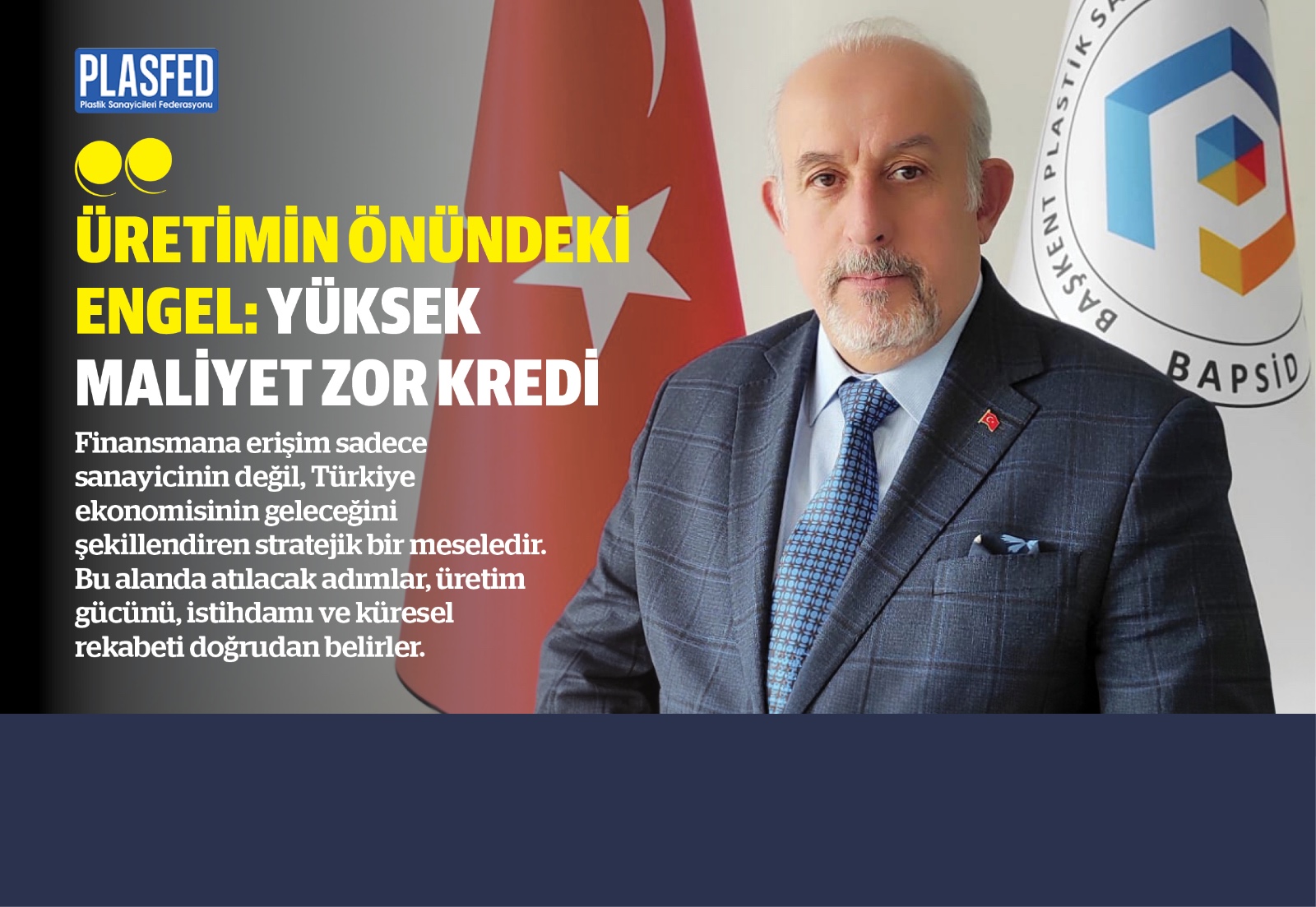
Access to finance is not only a strategic issue that shapes the future of the industrialist but also the Turkish economy as a whole. The steps taken in this area directly determine production capacity, employment, and global competitiveness.
Mehmet Hakan ATALAY
Chairman of the Board of Directors, Capital Plastic Industrialists and Business People (BAPSID)
The growth, transformation, and enhancement of global competitiveness of the industry are largely dependent on access to financing opportunities. From securing raw materials to increasing production capacity, from technology investments to export activities, industrialists require sufficient and cost-effective resources at every step. This need is critical not only at the business level but also for the overall health of the country's economy.
In recent years, industrialists in Turkey have encountered serious obstacles to accessing finance. Due to the impact of economic fluctuations, rising interest rates have increased credit costs. Especially small and medium-sized enterprises (SMEs) are struggling to take on debt under high-interest burdens and are forced to postpone investment decisions.
LACK OF COLLATERAL...
Another significant issue is the inadequacy of collateral. Banks require strong guarantees when lending; however, many businesses, especially newly established ones, struggle to provide such guarantees. Additionally, the complex bureaucratic processes and extensive documentation requirements encountered with loan applications take up businesses' time, slowing down and complicating the process.
Credit scores also emerge as a decisive factor in this process. Past negative financial situations can become a significant barrier to accessing credit today. Exporting industrialists, in particular, have difficulty accessing long-term, foreign currency-based credit sources. Currency fluctuations and uncertainties in international markets further fragilize this process.
Finally, the insufficient adoption of alternative financing methods in Turkey is a notable shortcoming. Alternative models such as leasing, factoring, venture capital, and crowdfunding are still used by a limited number of businesses. However, these intermediaries can offer more flexible solutions compared to the traditional banking system.
OPPORTUNITIES AND AREAS FOR DEVELOPMENT
Despite all these challenges, there are opportunities and solutions available to facilitate industrialists' access to finance. Firstly, publicly supported incentive mechanisms play an important role in this area. Grants, interest-supported loans, and investment incentives provided by KOSGEB, TÜBİTAK, and the Ministry of Industry and Technology serve as a lifeline, especially for projects focused on technology, digitization, and green transformation.
To address the collateral issue, the Credit Guarantee Fund (KGF) stands out. The KGF facilitates access to credit by guaranteeing banks. This model plays a significant role, especially in helping SMEs overcome financial barriers.
EFFECTIVE ACCESS TO FINANCE FOR A STRONGER INDUSTRY
Access to finance for industrialists is a strategic issue for the future of not only individual businesses but the entire economy. An industrialist who cannot access financial resources fairly, quickly, and sustainably is doomed to lag behind in production, exports, and employment... Therefore, strengthening public policies, making the financial sector more flexible, and directing industrialists toward alternative resources is critically important.
Addressing the bottlenecks in accessing finance will not only increase industrial production but also pave the way for sustainable growth that will fortify Turkey’s position in the global economy.
Translated by Artificial Intelligence
